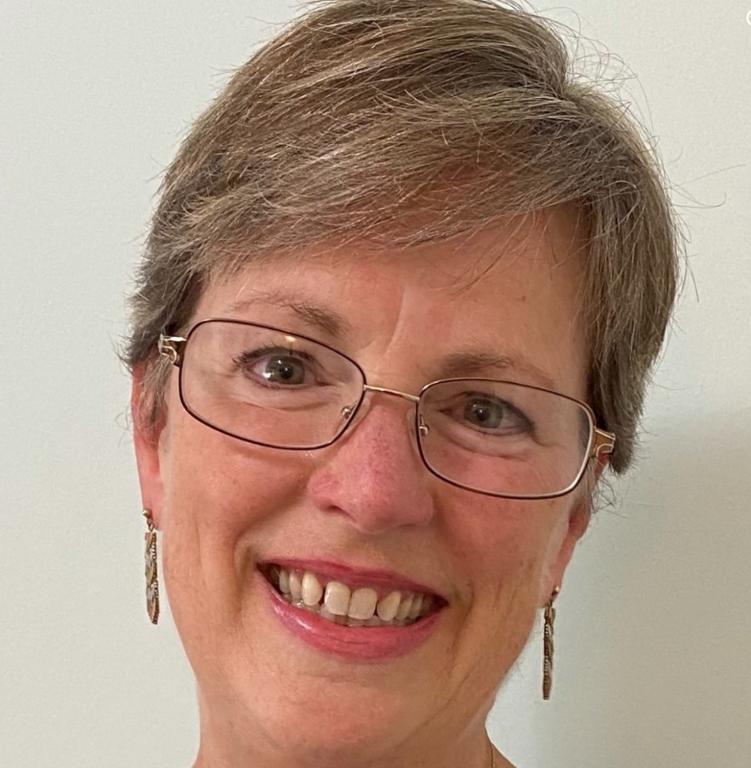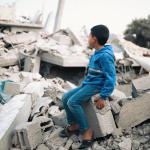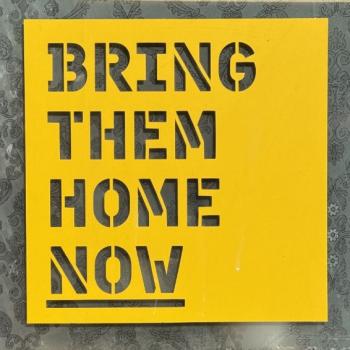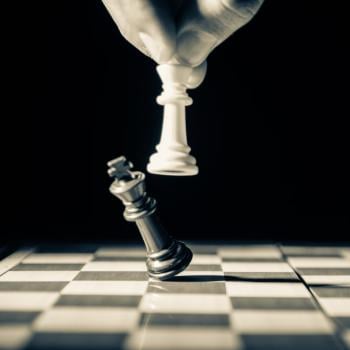It’s troubling to see, day after day, compassionate people doling out compassion with a teaspoon, as if too much empathy for the 3,000+ Palestinian children who have died in the past weeks will somehow leave too little for the 30 Israeli children killed on October 7th. And so we are carefully balancing our expressions of grief: half for this side, half for that side.
Christians, our “fair and balanced” compassion makes Palestinians invisible. They feel unloved, unnoticed, unvalued. It doesn’t take a mathematician to understand why.
Neutrality is not always a virtue.
Fifty-fifty
“Every child’s life is precious.” Yes, it is. We know that Israeli children’s lives are precious because we have wept for them. But if Palestinian children’s lives are equally precious, and they are dying in such staggering numbers, wouldn’t simple humanity suggest that our hearts should broken beyond repair for them by now?
To the impartial observer, we don’t appear to believe that every child’s life is equally precious.
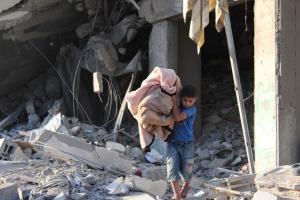
Some folks are going to tan my hide for this, but I have to say it: there are those among us who are deeply compassionate, but can’t muster and tears for the people of Gaza – not the parents of the 3,000 children who were killed, not the toddler who has lost his entire family and is alone in the world, not the husband whose family are all dead except for the newborn child doctors rescued from his dead wife’s womb.
We can look at the devastation that used to be Gaza neighborhoods, or fathers carrying unconscious and bloody children, or massive explosions in the night sky over a refugee camp – and not feel a thing.
That is not normal – not in a faith tradition that says, “love your neighbor as yourself” and even “love your enemies.”
For those who feel such indifference, I challenge you to keep reading, do some soul-searching, and seek God.
Innocence
“I grieve the losses of innocent lives on both sides.” Whom do we consider innocent enough to grieve for? How many of the seven thousand dead Palestinians are worthy of our grief? None of them? All of them?
Do we know enough about the history of the Palestinian people to decide whether they are grief-worthy? Hurt people hurt people. Can we grieve for the hurt that Palestinians have experienced for generations, that has informed their paradigm? For example, what drove this small group to commit a massacre?
We must understand Palestinians’ history: the capture and occupation of their land, their exile, the human rights abuse they’ve endured, in order to make an informed decision about their guilt.
We must also understand the history of Israel, its current policies toward Palestinians that amount to apartheid, or its daily violations of international law (for example, this), in order to make an informed decision about its innocence.
That is to say, if we have real grasp on the context of the Hamas massacre, we will recognize the trauma the Palestinian people have lived with for decades. Their trauma does not excuse the massacre, but it helps us to understand it.
We would know, for example, that if Israel had not treated Palestinians cruelly and unjustly, there would not be a Hamas today.
At the root of Palestinian anger is injustice.
To repeat: at the root of Palestinian anger is injustice.
If we don’t acknowledge the decades of injustice perpetrated against Palestinians – and begin to rectify it – it won’t do any good to “wipe out Hamas.” Another generation of resistance will rise up. Until there is justice, there will be no chance of peace.
If we don’t address the legitimate grievances of Palestinians (which, as it happens, include many horrific massacres), we are dehumanizing them. I shouldn’t have to point this out, but I do: Palestinians are human beings. Their experience, their anger, are as valid as ours. Their children are as precious to them as ours are to us. And their desire for a life of freedom, justice, and dignity is identical to ours – they have just been made to fight for it, and on October 7, they fought hard.
We need to fight the temptation to dehumanize. We don’t need any more Christian sadists than we already have. Too many self-identifying Christian leaders seem to believe that 7,000 dead Palestinians are too few. Because they don’t acknowledge the context, these Christians are calling for genocide.
Presidential candidate Nikki Haley told Israeli Prime Minister Netanyahu, “Finish them.”
Pastor Greg Locke called on Israel to “make the Gaza Strip a parking lot.”
Marco Rubio (R-FL) recommended that Israel respond “disproportionately,” rather than negotiating a ceasefire with “depraved barbarians.”
Others accuse all proponents of justice for Palestinians of being “Jew-haters.”
It isn’t appropriate for any person of faith to call for mass murder.
It’s irresponsible to condemn an entire people group based on the actions of a few – especially when we don’t even understand the situation.
Click on some of the links above; read some of the articles below. Get smarter! It will make you more compassionate, which will in turn make you more Christlike.
I invite you to subscribe to my newsletter. I write about the Palestine-Israel issue regularly, and other issues relevant to progressives or those considering becoming progressive. If you would like to comment on this post, please pop over to my Facebook page. All of my posts are there and open to constructive comment. I welcome your thoughts.
- Advice to the Church: Gaza is the hill you should be ready die on
- How to make sense of the Palestinian call for freedom and justice
- Don’t compromise truth on Israel and Palestine
- What People Of Faith Need To Know About Gaza And Israel Right Now
- In Gaza, she now inhabits a solitary space between life and death
- Update from loved ones – this is what it’s like to be alive in Gaza right now
- In recordbreaking heat, Israel intentionally impedes Palestinian families’ access to water
- Terror attack on Church of Gethsemane, Jerusalem
- Dear Jewish Americans, can we talk…about apartheid?
FEATURED IMAGE by hosnysalah, a Palestinian photographer currently living in Palestine Gaza Strip


